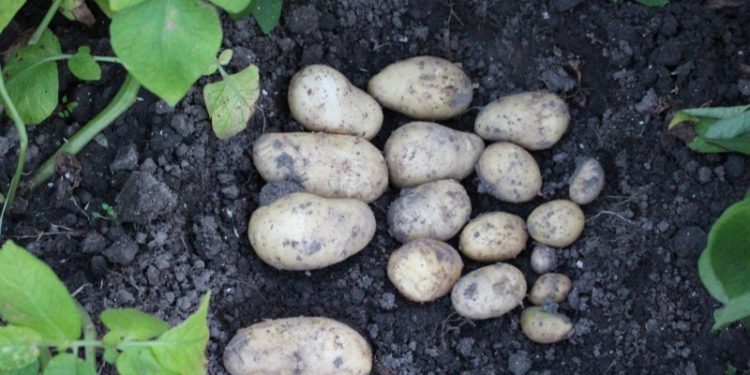According to project leader Niels Haining of Bionext, reliable potato varieties for organic cultivation also offer benefits to the conventional grower. On Wednesday, 31 participants in the supply chain from the potato sector signed a new agreement under which they commit to switch completely to organic potatoes. “Seven supermarkets want Dutch strong potatoes to be on the organic shelf all year round from 2026,” says Haining.
Why is this new covenant necessary?
“The agreement is important to keep resistant varieties together and to stay at the negotiating table with breeding companies. Further development of tasty and high-quality diversified packaging is also important. Preferably with multiple late blight resistance for each variety. The goal of supermarkets is to offer only Dutch strong Potatoes are in an organic range.Potatoes are now imported in June and July.We want to overcome this problem by pre-sprouting the tubers and growing them under the cloth.’
“Supermarkets want Dutch potatoes to be on organic shelves all year round from 2026”
Nils Haining, Project Manager Bionext
What is the importance of supermarkets?
“They see this as an important step to keep a steady supply of Dutch organic potatoes and be able to supply them all year round. In those years when there were no strong breeds, there was a lot of fluctuation in them. It’s nice that they stick their necks out. Also, supermarkets asking their suppliers to also select reliable varieties for processed potato products such as chips and french fries.’
Bionext says the full transition is good news not only for organic farmers, but also for traditional ones. Why?
“Choosing resistant varieties can provide huge environmental benefits for conventional growers. Half of all fungicides used in arable farming are against late blight. By 2030, drug use should be reduced by 50 percent. and greater interest.In 2022, 1,000 hectares of cultivated area represented a resistant variety.’
The first agreement was signed in 2017. What has it given so far?
“Now we have 33 reliable varieties on the market. Last season was the year of late blight, and then it turned out that some of the varieties tested were not resistant enough, such as Agria, Bintje and Frieslander.







